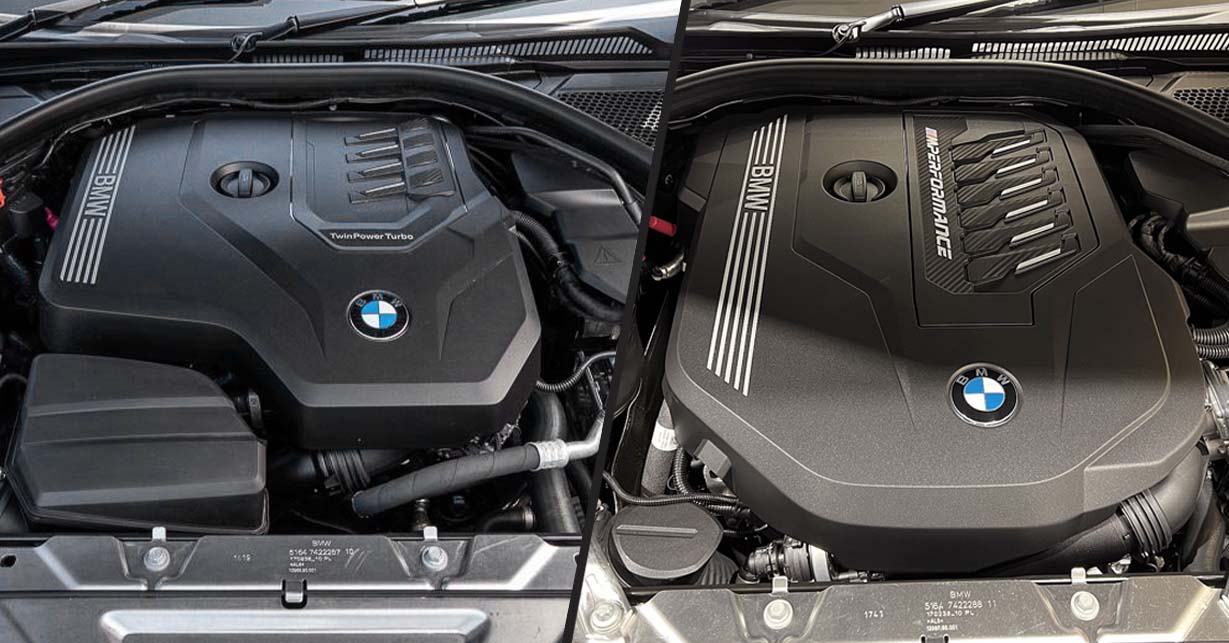The BMW B48 and B58 engines are part of BMW’s modern modular B engine family, offering enhanced power and efficiency over their predecessors.
The B48 is a 2.0L turbocharged inline-4 praised for its fuel efficiency while the B58 is a 3.0L turbocharged inline-6 praised for its strong power delivery and smoothness.
In this head-to-head comparison, we’ll explore the specifications, power output, tuning potential, sound characteristics, fuel efficiency, and reliability of the B48 vs. the B58.
BMW B48 vs. BMW B58 Specifications
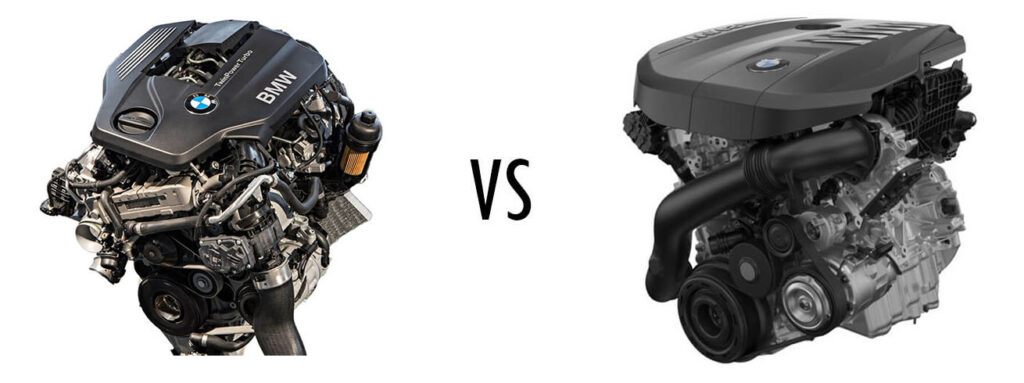
| BMW B48 (B48A20O1) | BMW B58 (B58B30O1) | |
|---|---|---|
| Horsepower | 255 hp @ 5000 – 6,500 RPM | 382 hp @ 5,000 – 6,500 RPM |
| Torque | 295 lb-ft @ 1,550 – 4,400 RPM | 369 lb-ft @ 1,600 – 4,500 RPM |
| Displacement | 2.0L (1,998 cc) | 3.0 L (2,998 cc) |
| Engine configuration | Inline-4 | Inline-6 |
| Turbo | Single twin-scroll turbocharger | Single twin-scroll turbocharger |
| Bore & stroke | 82.0 mm x 94.6 mm | 82.0 mm x 94.6 mm |
| Compression ratio | 8.9:1 | 11:1 |
| Redline | 7,000 RPM | 7,000 RPM |
| Cooling | Water-to-air intercooler | Water-to-air intercooler |
B48 vs. B58 Engine Overview
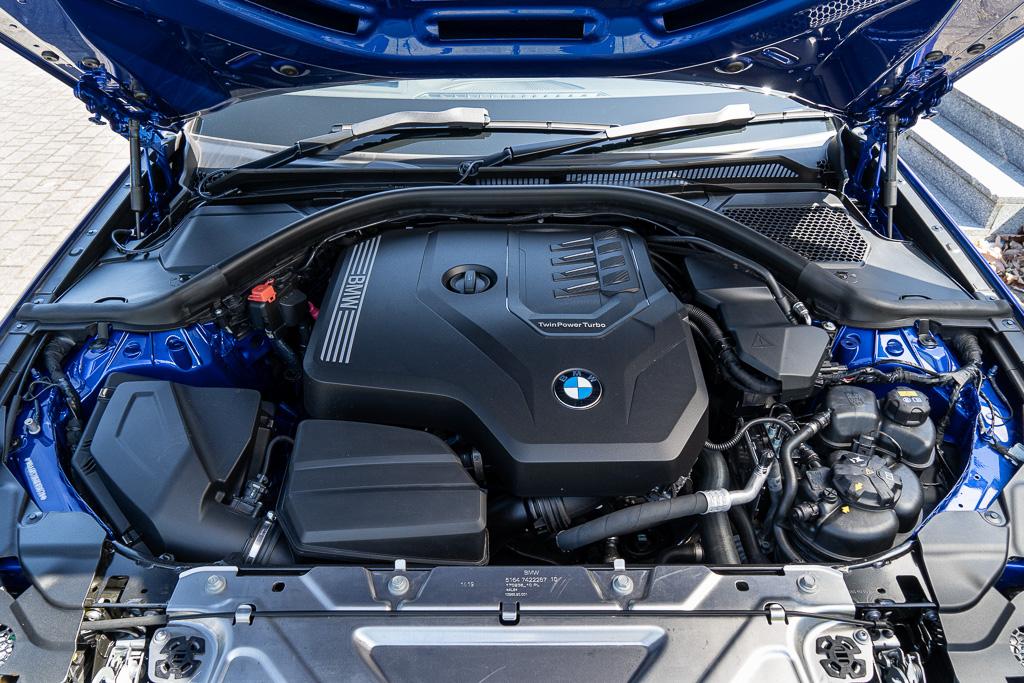
The BMW B48 started production in 2014. It powers BMWs such as the G20 330i, and the X3 30i. The B48 features an aluminum block and head design, a new under-square configuration, a stronger crankshaft, upgraded pistons, and improved bearings over its predecessor.
On the other hand, the B58 started production in 2015. It is a powerful engine stock but it has quickly gained a reputation as one of the best modern engines for tuning. It powers BMWs such as the 340i, M340i, X3 M40i, and X5 40i.
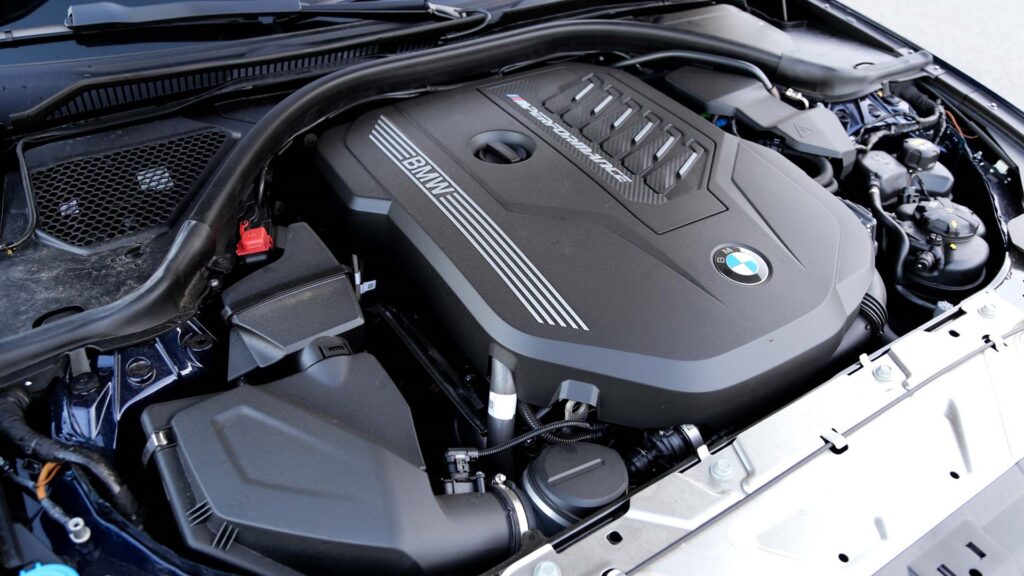
The B58 increased boost pressure by 20% over its predecessor, it also features a new closed-deck design with stronger internals.
Both of these powerplants feature a single twin-scroll turbocharger, direct injection, VANOS, Valvetronic, and a water-to-air intercooler.
B48 vs. B58 Horsepower & Torque
The B48 (B48A20O1) makes 255 hp and 295 lb-ft while the B58 (B58B30O1) outputs 382 hp and 369 lb-ft. Both engines output maximum horsepower between 5,000 and 6,500 RPM. Maximum torque is achieved between 1,550 and 4,400 RPM in the B48, and between 1,600 and 4,500 RPM in the B58.
Although this is completely expected, the B58’s higher power output is evident, offering much higher performance in all situations.
The B58 in the M340i produces nearly 50% more horsepower and 25% more torque than the B48 in a 330i
Torque curves are similar, but the B58 is much stronger at the top end of the RPM range, where the B48 starts losing steam. The B48 is indeed more impressive in the lower end of the rev range, as it produces close to 300 lb-ft from 1,600 rpm all the way up to 4,500 rpm.
The B58 will feel a lot stronger on the higher end. Those two extra cylinders and the extra liter of displacement become very apparent once above 4,000 RPM.
B48 vs. B58 Power Delivery
The B58 delivers more power throughout the entire RPM range. While the B48 offers ample torque for everyday driving and spirited driving, it will not be as exciting to drive as the B58. The B58’s additional cylinders and larger displacement results in stronger performance at all RPMs.
Despite their turbocharged nature, both engines have a relatively linear power curve. BMW has done an incredible job at minimizing turbo lag. Power delivery in both is fairly linear compared to most turbocharged engines.
Both engines deliver power with little turbo lag; the B58 is stronger throughout the rev range
However, the B48 is a smaller engine, and turbo lag is more noticeable. This is usually the case with 4-cylinder 2.0L engines as they rely on turbochargers more than a comparably larger engine such as the 3.0L 6-cylinder B58 which is rarely caught off-guard.
It is important to note that the B58 is a smoother engine and will transmit fewer vibrations to the cabin than the B48. An inline-6 is inherently balanced while inline-4 engines are not.
B48 vs. B58 Tuning & Modifications
Both the B48 and B58 engines respond extremely well to modifications and tuning. The B58, in particular, has gained popularity among tuners, earning a reputation as the “modern 2JZ” due to its high tuning potential.
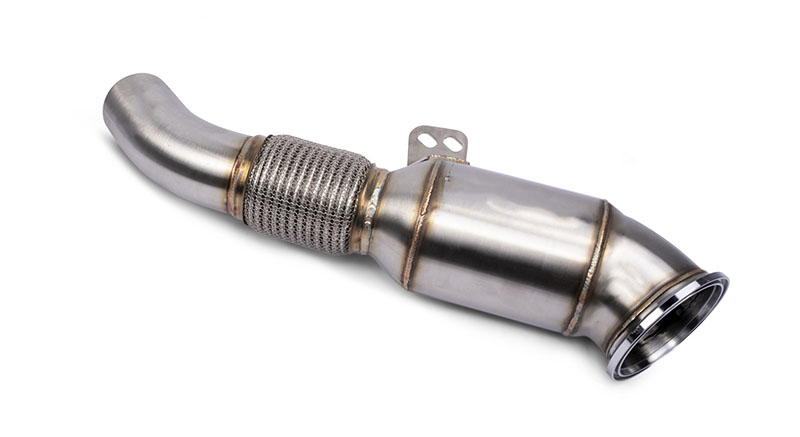
Aftermarket modifications accompanied by an ECU tune can significantly increase the power output of the B58, with some highly modified examples reaching up to 1,200 horsepower.
The tuning community is also bigger for the B58, with a large number of aftermarket modifications and ECU tunes available. You’ll find lots of information if you decide to modify your car to extract the most power possible out of the B58.
Both engines respond well to mods, but the B58 has a higher power ceiling
Nonetheless, the B48 is an impressive turbo inline-4. It puts into shame some engines with much higher displacement. Similarly, it responds very well to mods and ECU tunes, but the power ceiling is lower.
Highly modified B48 engines may achieve power levels similar to a stock B58, but the B58 engine offers greater potential for substantial power gains.
Both engines respond well to a catless downpipe, and an ECU tune. Other notable mods for the B48 and the B58 include aftermarket intakes and port injection.
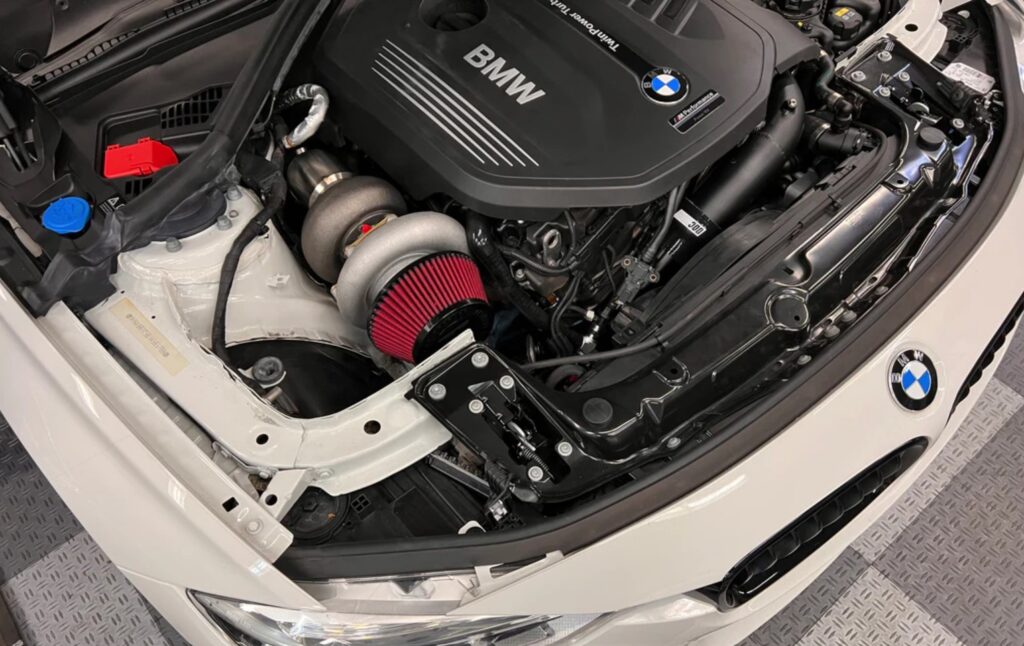
If you’re looking to get the most power out of the engine possible, the turbochargers on the B48 and the B58 can also be upgraded to bigger units.
B48 vs. B58 Reliability & Common Issues
The past 8 years have demonstrated that both engines are reliable. The B58 does have a slight edge as long-term data has shown that BMW 6-cylinder engines fare better long-term than 4-cylinder engines.
Nonetheless, no engine is perfect, and these do have some common issues. Coolant loss is a common problem in both, and VANOS actuators might need to be replaced eventually. Oil leaks may start to appear at very high mileage as well, but it’s not as big of an issue as it was in older BMWs.
Early B48 models also have an issue with oil leaking from the turbo return oil line, and an issue not present on the B58.
Based on previous BMW engines, the B58 will most likely have fewer issues than the B48
Compared to their predecessors, both the B48 and B58 have much-improved reliability and are considered to be the most reliable turbocharged BMW engines to date. Improvements such as belt-driven water pump and an engine heat encapsulation system for
However, only time will tell if they will match the longevity and durability of BMW’s naturally-aspirated inline-6 engines.
B48 vs. B58 Exhaust Sound
In terms of sound, the B48 engine sounds ordinary. Its sound resembles the very common direct-injected inline-4. The B48 doesn’t sound as pedestrian as a Corolla engine, as the turbocharger adds a slight aggressiveness and the upshift pops are pleasant, but its exhaust sound is pretty unremarkable.
On the other hand, B58 is a better-sounding engine. BMW has perfected the sound coming out of their inline-6 engines. At low RPMs, the B58 emits a refined deep groan, and at high RPMs, it delivers an exhilarating roar.
The B58 sounds much better than the B48
The B48 does not sound too exciting even for a 4-cylinder engine; many have compared it to the sound of a diesel engine.
A well-tuned aftermarket exhaust on the B58 can rival the sound of some V8 engines. Whether it be the connection to the 2JZ as the B58 does share an audible identity with the 2JZ or it is simply due to the fact that the B58 sounds similar to modern-day 6-cylinder racing cars.
B48 vs. B58 Fuel Efficiency
In terms of fuel efficiency, the BMW B48 engine shows impressive fuel economy figures. Similarly, the B58 has great fuel economy considering its power output.
The BMW 330i with the B48 is EPA-rated for a combined city/highway fuel economy of 30 MPG, while the M340i with the B58 is rated for an average of 25 MPG. Both are relatively high numbers if we take into account the ludicrous amount of power these two engines produce.
Fuelly numbers tell us a different story, however. A 2020 330i with the B48 averages 27.5 MPG, while a 2020 M340i with the B58 averages 22.8 MPG.
The B48 is a more efficient engine with impressive fuel economy
A BMW M340i with the B58 can achieve around 32 MPG on the highway. This is excellent fuel economy for a car with almost 400 hp on tap. On the other hand, the 330i with the B48 averages closer to 40 MPG on the highway.
The B58 consuming more fuel is expected, as it has a larger displacement and two extra cylinders. But it is impressively efficient for a 3.0L engine considering the horsepower and torque figures it can output.
Conclusion: B48 or B58?
The BMW B48 and B58 engines represent BMW’s commitment to improving internal combustion engines. Both are considerably better than their predecessors in terms of performance, efficiency, and reliability.
The B48 engine provides a more cost-effective option with a lower upfront cost. Also, its excellent fuel efficiency makes it a practical choice for a daily driver that has more than enough power for city driving.
On the other hand, if you desire a potent daily driver and your budget allows for it, the B58 engine delivers very strong performance, smooth power delivery, a more captivating sound, impressive tuning capabilities and is likely to maintain reliability even at high mileage.

